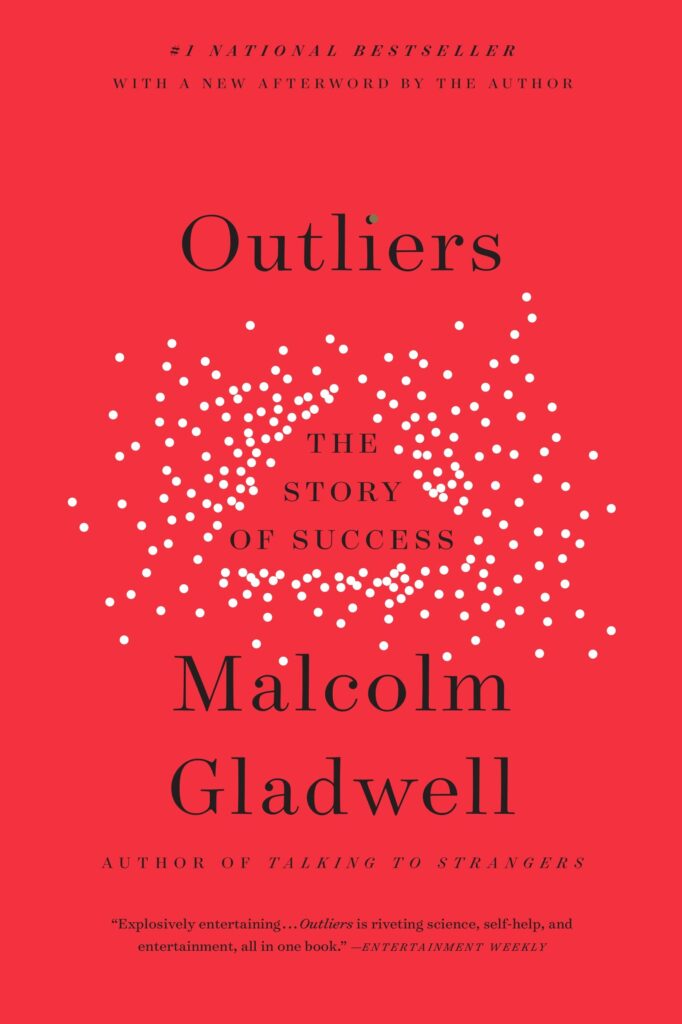
I know I’ve heard the name Malcom Gladwell before, but I do not know where or why I know it. I know he said something about not thinking people should work remotely despite him working remotely, but I feel like I’ve heard of him before. So I figured I should check out a book of his so I could try and remember. It did not remind me, but I think I understand his comments now.
The book is essentially an explanation that people who seem extraordinary or exceptional in some way, people who are outliers, are not actually that strange when you put them into their fuller context. Looking at someone’s background and upbringing can bring to light why they were able to succeed when other people failed, such as Bill Gates getting access to a computer at a young age before they were available publicly, which meant he had more experience than anyone else. Or people being born at a certain time of year make them more likely to be great hockey players because they were able to start training earlier.
I feel like in 2008 this was likely a bit more revolutionary, but in the age where I see more and more people questioning how the rich and famous got that way and nepotism is a more commonly known source of how people got into an industry, this might be one of those books that I came to far too late to get the impact that I was intended to get from it.
Not to mention it does get uncomfortable the further it goes. While there’s a sense of getting fuller context of individuals earlier on, when it moves to talking about foreign groups there’s an uncomfortable western lens put on things. Chinese kids are good at math because of language with no mention of the culture. The KIPP school is talked about as if the kids just need discipline and an opportunity without looking at the larger context of what a else a low income child might need. Korean pilots needed to be more American in their communication style. ((Which was something that gave me flashbacks to the Netflix book in particular)) There’s this sense of finding one clean-enough explanation and stopping that became much more evident as the book talked about larger and larger groups that were less western.
Still, for the time and if you did not think about it much before, this might not be a bad place to start. I tend to assume we all know that people that are put up on a pedestal as exceptional (And then later transforms into an unattainable expectation) have most of their context removed, but I am often proven wrong in that regard. If you’ve never thought about it, this might be a good place to start.